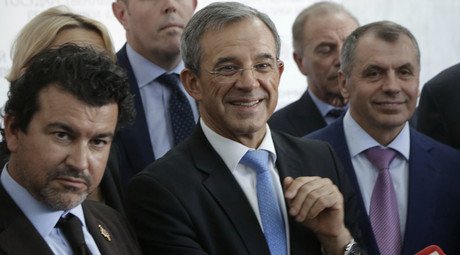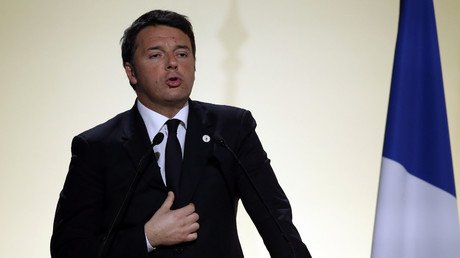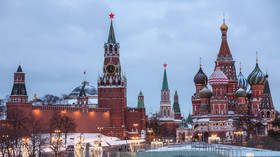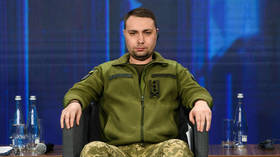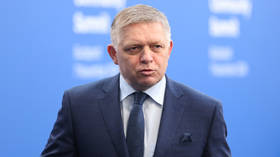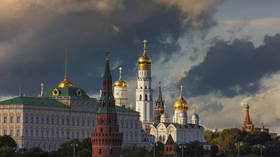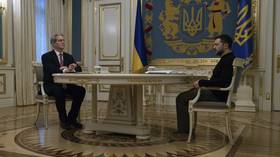Draft resolution against anti-Russia sanctions introduced to French parliament
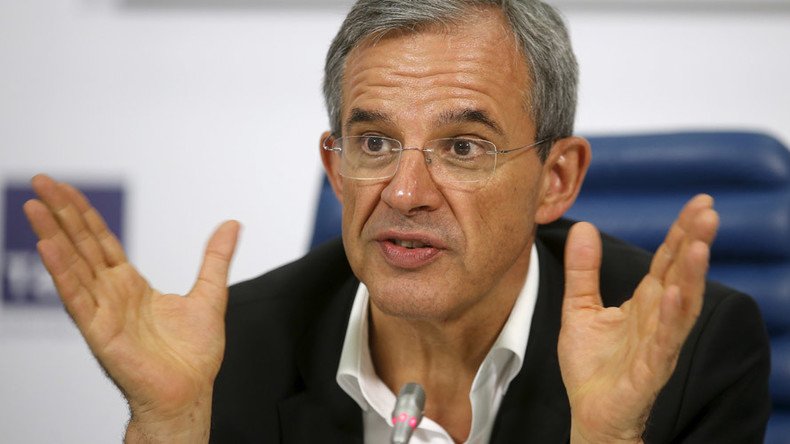
A French lawmaker has presented a draft resolution to the country’s parliament, which is calling for the lifting of the anti-Russian sanctions. The document denounces the sanctions as ‘ineffective’ and questions their legality.
The document was drafted and presented to the parliament on Wednesday by the Republicans party MP and former transport minister Thierry Mariani.
The proposed resolution lists the reasons for abolishing anti-Russian sanctions as well as economic losses brought to France by their imposition. The draft bill denounces the sanctions as “totally ineffective and mostly illegal” adding that they are “in contradiction with the fundamental interests of French-Russian relations” and harmful to France, Sputnik news agency reports.
"Bilateral trade has in fact declined. Since the beginning of 2015, the volume of Franco-Russian trade has declined by 40 percent, to a large extent due to the non-delivery of the Mistral warships. The cancellation of the sale of the Mistrals to Russia illustrated the abandonment of our national independence. This political mistake also has a considerable cost to French taxpayers," the document reads.
Italy hampers rubber-stamped extension of EU #sanctions against Russia https://t.co/lcIpkjSwDwpic.twitter.com/Kf3GH02XGQ
— RT (@RT_com) December 10, 2015In August, Russian President Vladimir Putin and French President Francois Hollande have reached an agreement to cancel the contract for two Mistral helicopter carriers after Paris suspended the contract citing Russia’s alleged involvement in the Ukrainian conflict.
Dispute 'completely resolved': Putin, Hollande officially cancel Mistral contract http://t.co/c236NlHsp1pic.twitter.com/vfdi2QCFoO
— RT (@RT_com) August 6, 2015The document also warns that France could suffer significant economic losses as its companies would lose their share of the Russian market and calls for evaluating the financial impact of the sanctions on the EU and particularly on France “with great realism” before extending the sanctions further.
"These sanctions, which will only push the Russians to reorient their trade, are detrimental to sustainable economic relations between France and Russia. If the sanctions last any longer, French companies will end up suffering more than Russia," the document reads.
The resolution also questions the legality of the sanctions targeting individuals claiming that they are incompatible with Article 6 of the European Convention on Human Rights that envisages the right for fair trial for violation of civil law.
"Such sanctions raise a series of questions, especially regarding the legality of such measures. Indeed, who can claim the right to create a list of citizens and applying personal sanctions against them without questioning, without having an opportunity to defend themselves and even have a lawyer," the draft bill says.
‘Without Russia we can’t solve conflicts of our time’ – Bavarian leader https://t.co/G1Bg0F8RAxpic.twitter.com/BrTpDURrjk
— RT (@RT_com) November 22, 2015According to the document, the fact that the sanctions were imposed by an executive and not by a judicial EU body also violates the rights of individuals targeted by the sanctions, as they could not appeal this decision.
The resolution also stresses that extension of sanctions impedes effective coordination between Russia and Western countries in fight against global terrorism, particularly against Islamic State (IS, formerly ISIS/ISIL).
"Taking into account the geopolitical context and the urgent need to fight Islamic State together with Russia, maintaining economic sanctions against the Russian Federation has lost its relevance … Indeed, we cannot ask Russia to be a partner in the fight against Daesh and simultaneously continue to impose sanctions against it," the document says.
In July, Mariani led a delegation of French MPs who visited Crimea and confirmed that it is “an absolutely peaceful region.”
He later faced criticism from French officials for his support of Crimea’s reunification with Russia with French Foreign Minister Laurent Fabius saying he was “shocked” by the MPs’ visit, saying it “risks violating international law.”
In November, Mariani was even asked to step down from the Parliamentary Assembly of the Council of Europe (PACE) because of his July visit to Crimea. However, political leverage has not forced him to change his stance towards Russia and Western sanctions.
"I would like to see France lift sanctions against Russia. It is proposed to the French government to acknowledge the cancellation of economic sanctions and limited measures imposed by the European Union to the Russian Federation and begin a review of the sanctions policy in regard to Russia," he wrote in the draft resolution, as quoted by Sputnik.
‘Bizarre & absolutely stupid’: French lawmaker demoted from PACE over Crimea visit https://t.co/Zc5GgE3zRtpic.twitter.com/jD7FX8XbJi
— RT (@RT_com) November 1, 2015The politician plans to discuss his resolution in the lower house of the parliament in January after the document receives the necessary backing from MPs.
"The next step would be to collect as many signatures among [Members of Parliament] under this resolution. My target is 150 signatures. After collecting them I plan in January to present it for debate at the National Assembly," Mariani said, as quoted by Sputnik News.
Meanwhile on Wednesday, Italy demanded that a six-month extension to the anti-Russian sanctions currently expiring on January 31, 2016, which was previously expected to be automatically adopted by EU envoys on Wednesday, should be further discussed before approval.
Now, the sanctions will be discussed and could be passed by the ambassadors from the 28 EU member states this week or by the EU foreign ministers on December 14 during a meeting in Brussels, Reuters reports citing diplomatic sources. However, according to some sources, the issue could be brought up for discussion during the EU leaders’ summit in Brussels on December 17-18.
Many Italian politicians and businessmen see anti-Russian sanctions as counterproductive, according to Fabio Massimo Castaldo, a member of the European Parliament from the Italian Five Star Movement party. “Extension of sanctions is useless … it has no sense,” he told RT, adding that Europe “needs cooperation with Russia” and “a real solution for Syria” is not possible without Russian diplomacy.
The EU imposed several rounds of sanctions against Russia in 2014 after Crimea’s reunification with Russia and the following outbreak of violence in the eastern Ukraine targeting the country’s energy, banking and defense sectors as well as some government officials and businessmen as well as several public figures. The sanctions were repeatedly extended in 2015 and are due to expire on January 31, 2016.
